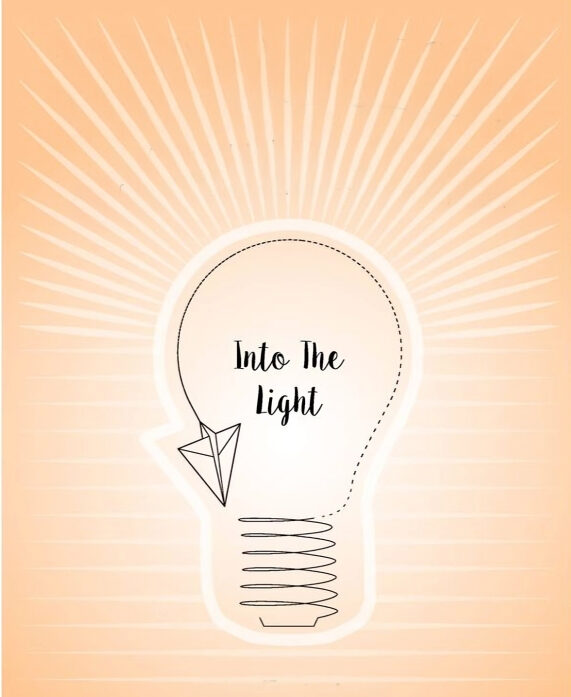You Don’t Have to Be Healthy to Matter

Chronic Illness and Self-Worth Can Coexist
There’s this sneaky little voice that says if I could just feel better, be better, do better—
I’d finally get my life back on track. I’d return to the version of life I envisioned before all this. Living with chronic illness can quietly chip away at your sense of self.
At first, maybe you ignore it.
You roll your eyes, adjust your heating pad, move on.
But then you hear it again—from a doctor, a well-meaning friend, a social media post about “morning routines of successful people.”
It starts cropping up in more places than you’d expect—subtle, smug, and wildly uninvited.
And without realizing it, you start breathing in that message like secondhand smoke—
the one that says chronic illness and self-worth can’t coexist.
That if your body’s struggling, your value must be too.
We started to believe that rest was something to be ashamed of.
That needing help meant we were failing at life.
That unless we were operating at full speed, we didn’t have much to offer.
Let me say this as clearly and compassionately as possible:
That voice? It’s full of crap.
You don’t need a clean bill of health to build something beautiful.
Your life isn’t in a holding pattern until your body decides to behave.
This version of your life—the one with backup plans, bad pain days, and unmatched resilience: it still gets to be joyful, rich, funny, messy, meaningful.
It still counts. Even if your week has been 75% survival mode and 25% talking yourself out of canceling everything.
Somewhere along the way, we were handed a rulebook we didn’t ask for, printed in fine, invisible type:
To participate fully, please present one functioning body. Preferably glowing.
It wasn’t always shouted.
Sometimes it slipped in sideways, like when people clapped for you pushing through pain.
Or when the room got noticeably quieter the second you mentioned your diagnosis.
Or when friends just… stopped inviting you because “we figured you wouldn’t feel up for it.”
But here’s the thing about that lie: it only holds power if we keep nodding along with it.
You’re allowed to call BS.
You’re allowed to put that burden down and walk—limp, roll, or collapse-then-crawl—into a new kind of life.
One that doesn’t wait for your body to catch up.
One that will be vibrant, meaningful, fierce—whatever perfect looks like now.
You matter. Right now. As you are.
And so does this life you’re living.
Illness can reroute your plans, tank your energy, and turn your calendar into a loosely held suggestion with zero respect for your agenda.
But there are things it doesn’t get to touch.
It doesn’t get to take your sense of humor.
Not the polite “I’m fine” laugh—the one you save for coworkers and mixed company, but the sharp, strange, deeply specific kind that shows up when everything’s on fire and somehow makes it bearable.
It doesn’t erase your presence, the way you actually pay attention when someone talks, the way people feel steadier just sitting next to you on the hard days.
It doesn’t undo your intellect.
Brains don’t leak out just because your joints revolt or fatigue kicks down the door without knocking.
Your insight, your curiosity, your way of understanding the world—those are still fully online.
And it definitely doesn’t touch your lived experience.
The things you’ve learned, survived, messed up, rebuilt, loved, lost, and held onto?
That history doesn’t disappear because your body throws new challenges into the mix. If anything, it adds layers.
No, you might not be “showing up” the way you used to. But showing up doesn’t always look like crossing finish lines.
Sometimes it looks like texting a friend back, or walking your dog when you’d rather dissolve, or not screaming at a friend who just said something wildly unhelpful.
(It counts.)
Your connection to other people? The way you make them feel?
That doesn’t disappear just because your muscles are glitchy or you’re too tired to move your face.
It also doesn’t erase your life goals.
Sure, you may have to recalibrate.
You might need a different timeline, different tools, a plan with more side exits.
But chronic illness and self-worth are not opposites—and they don’t cancel out your ambition. You’re still someone with direction, with vision, with things you want from this life.
It just means you’ve learned to dream with more flexibility—and maybe a better sense of humor.
There is still so much about you that is intact.
Still so much that resonates—quietly, steadily, and without needing to be inspirational about it.
Let’s just say it: there is grief here.
Not because you’re weak, not because you’re ungrateful, and not because you’re wallowing.
But because something changed. Something big.
And no one warned you that living in a body with new rules would feel like mourning the version of you that was still making plans.
You imagined a different pace, a different rhythm, a different kind of ease.
And instead, you got a life that requires logistics, negotiation, and an ongoing truce with your own body.
Grief doesn’t always show up dressed like sadness.
Sometimes it’s frustration. Or guilt. Or total emotional flatness.
Sometimes it looks like you canceling plans you were excited about and then resenting everyone who still gets to go.
Grief also has a sidekick called catastrophizing—and come on, let’s not pretend we haven’t all hosted that guest.
It shows up loud, dramatic, and suspiciously confident for something that’s just guessing.
It throws out worst-case scenarios like confetti.
“This pain is permanent.”
“You’ll never get back to who you were.”
“This one symptom means everything’s about to fall apart.”
And you know what? Sometimes we believe it.
Not because we’re irrational, but because when your body’s already proven it can knock the wind out of you on a whim, your brain starts bracing for more.
Catastrophizing makes it hard to imagine anything good sticking around.
It convinces you that chronic illness and self-worth can’t live in the same body.
And then it leaves—quietly, like it didn’t just ruin your entire morning—while you’re still sitting in the wreckage wondering if you’re being dramatic or just early to the meltdown.
And here’s the kicker: when you’re grieving, it’s easy to think that letting go of the life you imagined means giving up.
But it doesn’t.
Letting go doesn’t mean surrendering your joy, your power, or your ability to shape something beautiful.
It just means you stop gripping so tightly to the version of life that depended on you never getting sick.
Because chronic illness and self-worth are not mutually exclusive.
You can carry both—the grief and the grit, the hard days and the unexpectedly good ones.
This version? The one where you rest more. Where you move slower.
Where you notice things that used to blur past?
This version can still be yours. It can still be great.
You’re allowed to carry grief in one hand and joy in the other.
You’re allowed to love what you’ve built—even if it wasn’t Plan A.
You can miss the life you imagined and still love the one you’re in.
You may not have chosen this version of life, but you’re still the one living it.
And that means you still get to shape it.
It might not look like the life you pictured.
But that doesn’t mean it’s second-best.
This version might actually be more intentional. More connected. More real.
Not in spite of the hard days—but alongside them.
You still get to decide what matters.
Who gets your energy.
What gets your time.
What you care about enough to fight for—and what you quietly let go to protect your peace.
You don’t owe anyone a comeback story.
You don’t need to prove your worth by overcoming the very thing that slowed you down.
You’re allowed to build a life that fits now.
Not the old version of you. Not the “once I feel better” you.
Just… you. Today. With what you’ve got.
Because even now—especially now—this life is still full of choices.
Maybe different choices than you wanted. But not none.
You get to say what kind of person you want to be in the middle of this.
You get to decide what you love, who you love, how you show up.
And that?
That’s not small.
That’s not giving up.
That’s building something real.
You don’t have to fix yourself to be worthy.
You don’t have to earn your way back into belonging.
This life—the one you’re building right here, right now—is already enough. If no one told you today: your worth isn’t tied to how well you function. It never was.
But if you want company while you build it— a place for real conversations, quiet wins, tough days, baffling symptoms, and still—still—the belief that your life can be beautiful?
Come join the community.
We’re already saving you a spot.
No lead funnels. No endless emails. No trauma-dumping in the name of connection.
Just a place to land when the world feels too loud and too able-bodied.
And if this post felt like a deep breath, you might love having a companion like it nearby.
This book is full of the same kind of honesty, humor, and hard-won hope.
(Plus, yes—it’s mine.)


